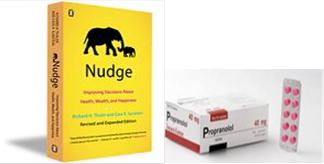Healthcare Allocation for Limited Budgets
By Joshua Parker and Ben Davies
Like many public services, the UK’s National Health Service (NHS) is under increasing resource pressure across the service. Acute services are under strain, with every stage between dialling 999 and getting into a hospital bed taking longer. Waiting times are also up for non-urgent care: 7 million people are on a waiting list in England, while General Practitioners (GPs, the UK’s primary care physicians) are exceeding safety limits and still not managing to meet demand. These measures are only proxies; the underlying concern is that failures in these metrics betray failures of quality and safety.
In part this is due to chronic under-investment made worse by a range of factors: greater demand generated by Covid and lockdowns; increasing complexity with an ageing patient population; more medical ability due to developments in medical technologies; and staff shortages that are in part a result of the UK’s departure from the European Union. However, some may argue that the pressure is also a sign that the NHS is trying to do too much in straitened times, and perhaps even that the scope of what a health system is responsible for has been expanded too far.

